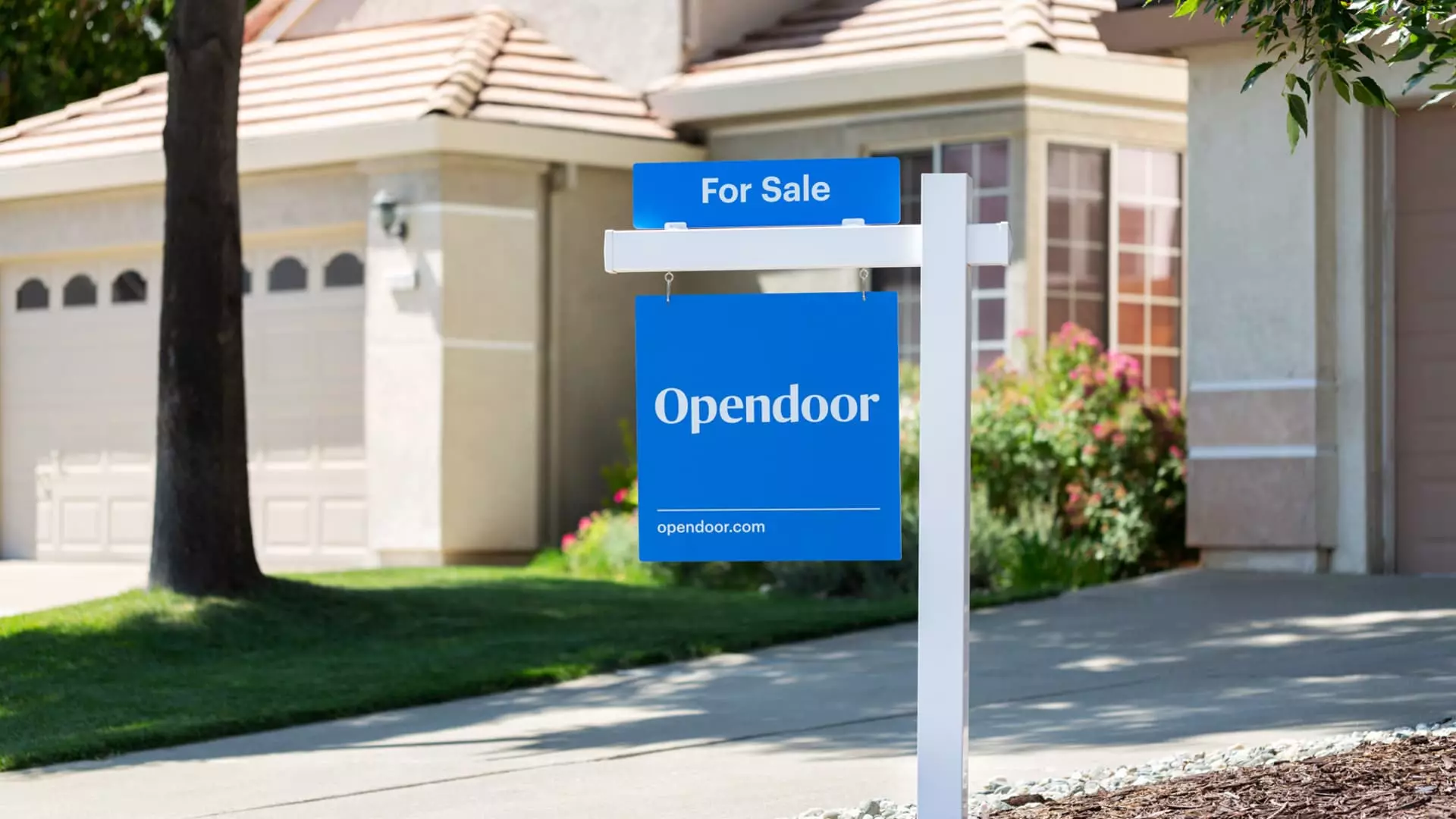The recent surge in Opendoor Technologies’ stock exemplifies how nostalgia for quick riches can distort investor judgment, especially among retail traders influenced by internet forums like Reddit’s WallStreetBets. What began as a marginal penny stock skyrocket has morphed into a volatile spectacle that exposes the superficial nature of meme-driven investing. Rather than reflecting genuine confidence in the company’s long-term prospects, this frenzy highlights a dangerous herd mentality where momentum is mistaken for value. The soaring share prices, interrupted by halts and backed by amplified trading volumes, are reminiscent of bubbles fueled more by narrative than fundamentals. Retail traders, intoxicated by the prospect of turning small bets into fortunes overnight, often fail to critically assess whether such rallies are sustainable or merely illusions.
The Market’s Illusion of Opportunity
Opendoor’s stock trading activity has been extraordinary, with billions of dollars exchanging hands and short interest reaching concerning levels. What makes this situation particularly alarming is the role of short sellers who might be forced to buy back shares en masse—a phenomenon known as short covering—that further propels the price spike. While some interpret this as a sign of market inefficiency, it may also serve as a warning against complacency. The crux lies in understanding that such surges are primarily driven by speculative fervor and options market speculation, not tangible company performance. This disconnect between price and intrinsic value signifies a risky divergence that can lead to painful corrections if market sentiment shifts.
The Illusion of Innovation and the Reality of Overvaluation
Opendoor, a business entrenched in the real estate sector leveraging technology to facilitate home transactions, initially seemed to represent an innovative pivot during a period when the market was euphoric. Its IPO through a SPAC during the COVID-19 era exacerbated this perception, riding a wave of low interest rates and liquidity-driven optimism. However, the current rally unveils the peril of conflating innovation with inflated stock prices. The company’s fundamentals—like earnings, cash flow, and sustainable growth—have taken a backseat to the spectacle of a burgeoning meme stock. For centrist liberals committed to a balanced market, this phenomenon underscores the urgent need for prudence and regulation to prevent speculative excesses that threaten broader economic stability.
When Sentiment Overrides Substance
Ultimately, what the Opendoor saga reveals is how social sentiment and online hype can distort market reality, fueling artificial gains disconnected from the company’s true worth. This episode echoes the lessons of past bubbles—be it dot-coms or housing crashes—that highlight the destructive potential of herd behavior driven by fleeting online trends. While it may be tempting to chase these “hot” stocks with hopes of quick wealth, a centrist, pragmatic approach emphasizes responsible investing, skepticism of hype, and a focus on real company fundamentals. Society must recognize that the allure of meme stocks is a mirage; behind the shiny surface lies a risk-laden landscape where many unprepared investors could suffer significant losses once the fanfare subsides.

